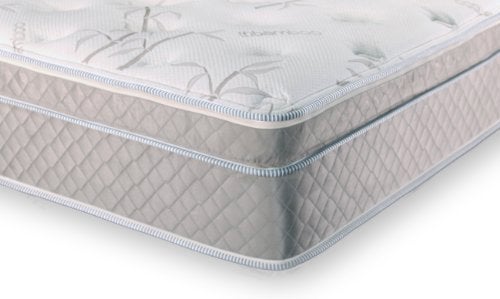How Do I Know That My Mattress Is Bad?
We participate in affiliate programs where we are compensated for items purchased through links from our site (at no cost to the buyer).
Are you waking up feeling more tired than relaxed? Is your mattress really making you feel worse? What are the signs of a bad mattress?
Sleeping on a good mattress is crucial for your health. A good mattress will support your body weight and spine. It will keep your neck aligned and will relieve pressure. It is the only way to ensure that you feel refreshed on the next day. But sometimes you wake up feeling drained. Or you wake up with muscle strain that affects the quality of your life. This could be directly related to your mattress. You need to understand the signs of a bad mattress so that you can decide whether your mattress needs replacement.

Is Your Mattress Too Old?
A mattress is supposed to be replaced every 6 to 8 years depending on how often you use it. This means that if you spend more time in bed, for example reading or working, then you might need to replace it a little more often.
A mattress could be made of memory foam, latex or inner spring coils. Each type will deteriorate over time. People often make the mistake of not replacing their mattresses as often as they should. So you might wake up with more pain than what you had when you initially went to bed.

If you sleep on a mattress that is too old, it will not provide enough support for your neck and spine. This is one of the symptoms of a bad mattress. Over the years, your body might go through a series of changes; weight gain, weight loss, pregnancy or accidents. You must make sure that your mattress is designed to suit these changes. This will ensure that you wake up feeling relieved and relaxed. The quality of your mattress can also determine the overall quality of your life. When you wake up feeling sick and worn out, you will not be able to perform properly on the next day.
Are You Dealing with More Allergies?
Sometimes you are dealing with more allergies that won’t just go away. This could be one of the signs of a bad mattress. If your mattress is made up of materials that cause allergy then it is definitely a sign that you should replace it right away. Always buy a mattress that is designed to reduce allergic reactions. Nevertheless, if you are specifically allergic to one of the components then you would still probably have to replace your mattress even if it is a good one.

You also need to clean your mattress often. Dust mites are known to cause more allergies. If your mattress is hard to clean or wouldn’t clean properly then you probably need to replace it. Dust mites are microorganisms that can’t be seen but will live on your bed. They feed on dust and dead skin cells. So make sure that you are sleeping on a clean healthy mattress to improve the quality of your life as a whole.
Do You Still See Your Body Frame Carved in Your Mattress?

The surface of your mattress should be often examined. It should be frequently rotated. This will lengthen the life of your mattress. But if you still see the indentation from where you sleep, even hours after you wake up, then you probably need to replace your mattress.
Your mattress probably has a comfortable layer to provide plush and comfort. Then it has a harder layer made of inner coils or of dense foam. When your mattress is made of bad materials, it will not bounce back once you leave the bed. Over time your mattress might start to lose this property or sag. This might mean that you need to rotate your mattress. Rotation will ensure that your body weight pressure doesn’t affect the quality of your mattress.
One of the symptoms of a bad mattress is that you feel that you are sleeping on the support layer which is a lot harder than the plush layer. This will cause muscle and bone pain. You will wake up feeling strained and drained. The support layer is not designed for you to sleep on. Once your body sinks into the mattress; you actually wake up feeling tired.
Is Your Mattress Designed To Support Your Sleep?

Mattresses are made of different materials to suit different needs. Some mattresses are firmer than others. These suit heavy weight sleepers as they provide more support. A firm mattress will not sink under heavy weight. If you are not that heavy, this mattress might be too firm for you.
The opposite is also true. Very plushy and soft mattresses are not suitable for heavy people. They are designed to suit medium and light weights. If you are overweight, your body will sink in and might feel that your body is pressed against the support layer which could be very uncomfortable. Make sure that your mattress is suitable for your weight and sleeping style. This will ensure that you wake up feeling relieved and will provide you with high quality uninterrupted sleep.
Side sleepers need mattresses that offer more plush than stomach sleepers. You might need something that will relieve pressure points relief. A stomach sleeper would need something that is a bit firm to support the body.
